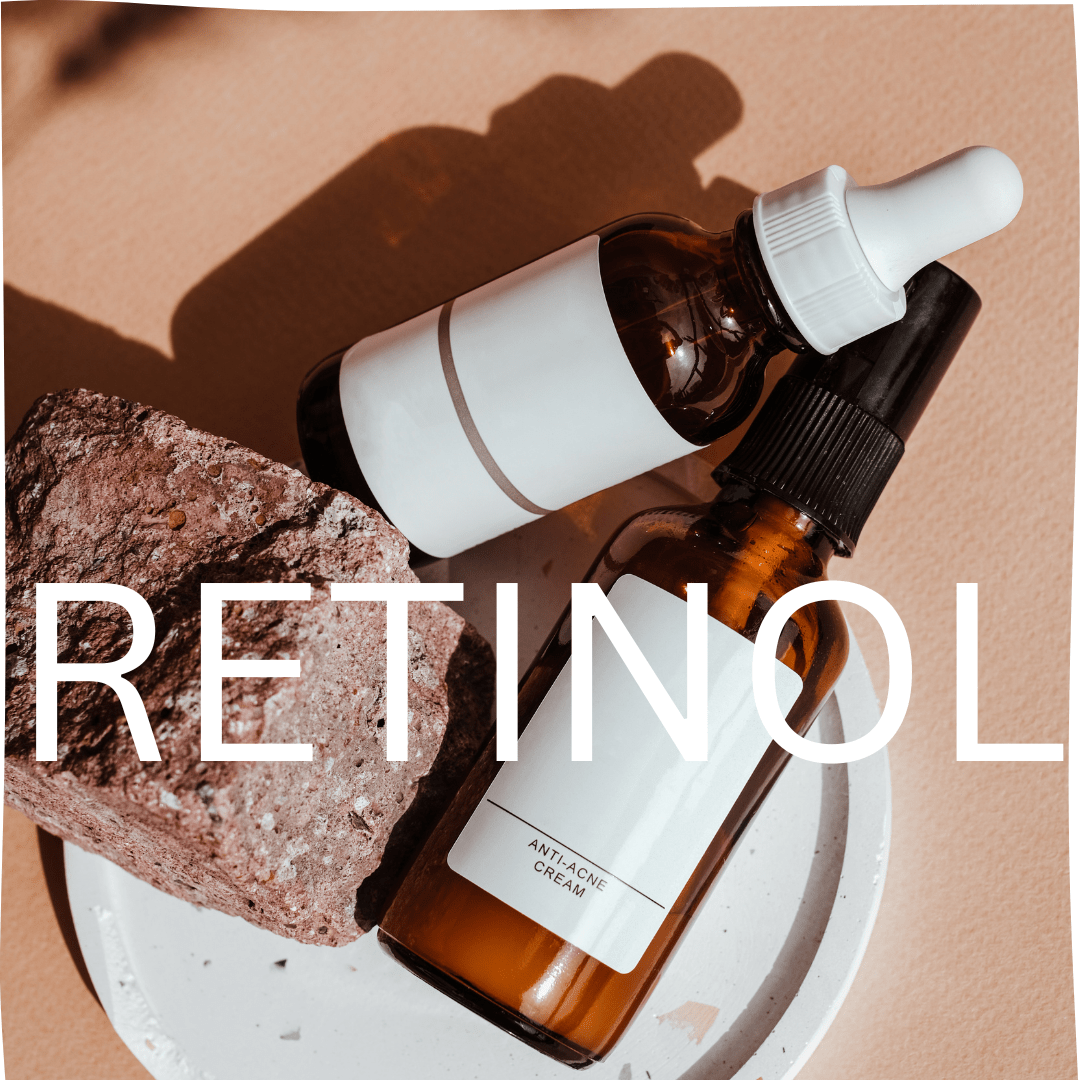Retinol – the gold standard of skincare ingredients! You’ve probably seen it touted on product labels and skincare expert recommendations, but what exactly is it and how does it work its magic?
Disclosure: We will receive a commission if you make a purchase through our affiliate link at no additional cost to you.
What Is Retinol?
Retinol, a derivative of vitamin A (also known as vitamin A1), is a type of retinoid – a class of compounds with proven skincare benefits.
Retinol is commonly found in over-the-counter (OTC) skincare products, prescription-strength treatments, and even some foods.
It’s ability to promote cell turnover, collagen production, and skin elasticity makes it a powerhouse ingredient for addressing various skin concerns.
How Does Retinol Work?

- Increases Cell Turnover: It accelerates the shedding of old skin cells and promotes the growth of new ones. This leads to smoother and more radiant skin.
- Boosts Collagen Production: It stimulates the skin to produce more collagen, a protein that provides structure and elasticity. This helps reduce the appearance of fine lines and wrinkles.
- Reduces Pigmentation: It inhibits melanin production, which can fade dark spots and even out skin tone.
- Unclogs Pores: It helps clear and prevent clogged pores by normalizing the production of sebum and removing dead skin cells. This makes it effective for treating acne.
- Thickens the Epidermis: It strengthens the skin’s outer layer, improving its texture and resilience.
Is Retinol Effective at Treating Acne?

Yes! It is very effective in treating acne.
It works by:
- Unclogging Pores:
- Accelerates Cell Turnover: It speeds up the shedding of dead skin cells, preventing pore blockages.
- Prevents Blockages: Keeps pores clear of debris and excess oil.
- Regulates Sebum Production:
- Controls Oil: Normalizes oil production to reduce acne.
- Reduces Inflammation:
- Soothes Redness: Decreases redness and swelling of acne lesions.
- Prevents New Breakouts:
- Improves Texture: Helps to avoid new breakouts by preventing dead skin cell buildup.
Retinol helps manage and reduce acne by keeping pores clear, regulating oil, and soothing inflammation.
How to Use Retinol
- Start Slow: Begin by using a low concentration of retinol (0.01% to 0.03%) and gradually increase the frequency and concentration as your skin adjusts.
- Apply at Night: It is sensitive to light and can degrade in sunlight, so it’s best applied in the evening.
- Use a Pea-Sized Amount: A small amount goes a long way. Apply a pea-sized amount to your face after cleansing and drying your skin.
- Moisturize: It can be drying, so it’s important to use a moisturizer after applying it to keep your skin hydrated.
- Sun Protection: Always use sunscreen during the day when using it, as it can increase your skin’s sensitivity to the sun(It is better to use retinol at night)
Who Should Use Retinol?
It is generally safe for most skin types, but it’s particularly beneficial for those with:
- Aging skin
- Acne-prone skin
- Uneven skin tone
However, individuals with sensitive skin, eczema, or rosacea should proceed with caution and may want to consult a dermatologist before using it.
Common Misconceptions
- It is harsh: While it can cause initial irritation, this is usually temporary and subsides as skin adjusts.
- It is only for aging skin: It benefits acne-prone skin, hyper-pigmentation, and skin texture, making it suitable for various skin types and concerns.
Retinol Products According To Your Needs
Here are some highly recommended retinol products, each catering to different needs:
1. For Beginners and Sensitive Skin:
- CeraVe Resurfacing Retinol Serum: A gentle formula that combines retinol with ceramides to support the skin barrier while treating acne and uneven skin tone.
- Neutrogena Rapid Wrinkle Repair Retinol Oil: Known for its mild retinol concentration, this oil is suitable for sensitive skin and helps improve texture and radiance.
If you prefer not to use oil-based products on your face like me, it’s best to skip the Neutrogena Repair Oil.
2. For Anti-Aging:
- RoC Retinol Correxion Deep Wrinkle Night Cream: Formulated to target deep wrinkles and improve skin elasticity, ideal for those focused on anti-aging.
3. For Acne-Prone Skin:
- Differin Adapalene Gel 0.1% Acne Treatment: Contains adapalene, a retinoid similar to retinol, and is specifically designed to treat and prevent acne.
4. For Dark Spots and Hyperpigmentation:
- CeraVe Resurfacing Retinol Serum: This is also recommended for post acne scars and hyperpigmentation.
- Olay Regenerist Retinol 24 Night Facial Moisturizer: Designed to improve skin texture and diminish dark spots while providing hydration.
Potential Side Effects
- Dryness and Irritation: Some people experience dryness, redness, and irritation when first using retinol. This usually subsides as the skin adjusts.
- Sun Sensitivity: Retinol can make the skin more sensitive to UV rays, so it’s crucial to apply a broad-spectrum sunscreen daily.
- Purging: An initial increase in breakouts or skin flakiness may occur as the skin adjusts to the increased cell turnover
It is a skincare powerhouse that deserves its reputation.
By understanding how it works and incorporating it into your skincare routine, you can unlock radiant, healthy-looking skin.
Remember to start slow, be patient, and pair it with a gentle moisturizer and sunscreen for optimal results. Embrace the transformative power of retinol and say hello to glowing, vibrant skin!
Read More: The Benefits Of Dermarolling
